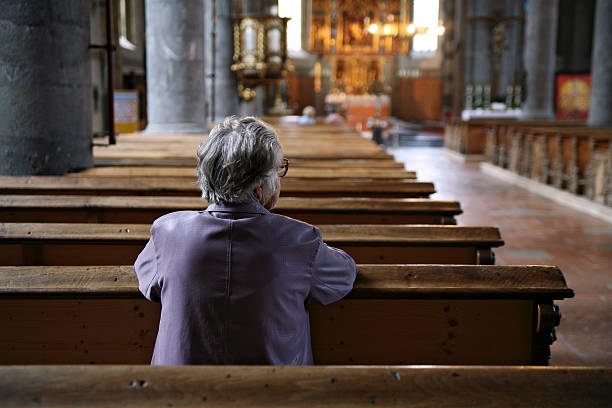(ThyBlackMan.com) According to a USAFacts.org 2023 published study, in the 2020-2021 school year, black men made up 1.3% of the nation’s 3.8 million public school teachers. This is a decline from the 2017-2018 school year when black men made up 6.5% of the nation’s public school teachers. The highest proportion of black male teachers is in large cities and southern states.

Dr. Richard M. Thomas, Assistant Professor of Elementary and Secondary Education at Tuskegee University stated that black male teachers are needed in the classroom, “in order to foster a more inclusive, supportive, and diverse educational environment that benefits all students.” He outlined three reasons why there is an urgent need for black male teachers:
(1) Role models:
-Black male teachers can inspire students who identify with them racially or culturally, especially those from underserved rural and urban communities.
-They bring diverse perspectives and life experiences to the classroom, enriching the learning environment for all students, particularly those who are underserved.
-By demonstrating educational success and leadership, black male teachers challenge stereotypes and break down racial biases, which is crucial regardless of the student’s socioeconomic background.
(2) Shortage:
-There is a shortage of black male teachers in many educational systems, which needs to be addressed to provide more diverse representation among educators.
-Black male teachers may better understand and connect with students from similar backgrounds, fostering a sense of belonging and support.
(3) Equity of Representation:
-Having black male teachers ensures that the teaching staff reflects the diversity of the student population, which is essential for creating an inclusive and equitable learning environment.
-Black male teachers can bring cultural competence to the classroom and understand students’ unique needs and perspectives from diverse backgrounds.
-Equity in representation empowers students by showing them that individuals from their
community can succeed in various professional roles, including education.
The Black Male Teacher As A Role Model
Leron McAdoo is an Art Teacher at the Little Rock Central High School. The school was the site of forced desegregation in 1957 after the U.S. Supreme Court ruled in the 1954 Brown v. Board of Education case that segregation by race in public schools was unconstitutional. McAdoo shared the story of his first black teacher, his 6th grade teacher, Mr. Robert Drake. It was Mr. Drake that inspired him to complete his education and become a teacher himself. “The black male educator not only delivers curriculum, but he also stands as a model for black students and a symbol that combats the negative images found in society about black students. Also, seeing a black male educator is powerful for a black male child. I know because it was powerful for me,” said McAdoo.
Kamiah Turner is the Principal of Colonial Middle School in the Shelby County—Memphis, Tennessee school district. Shelby County is the largest school district in the state of Tennessee and the 22nd largest in the country. The district has a 72.2% black student population. Fifty-one percent (51%) of the students are male. Memphis’ Child poverty is 32.7%. All the children in the Memphis Shelby County school district eat breakfast and lunch for free.
Prior to becoming the Principal of Colonial Middle School, Mr. Turner was a math teacher for 16 years. For most of his career, he taught in high-poverty, high-crime, low-socioeconomic communities. In a sit-down face-to-face interview in his office, Mr. Turner shared some revealing comments as to why it is vital to have black male teachers in the classroom.
“It is important for children to see black male figures—positive black male figures every day. And to be able to learn from a positive black male figure. Many black male teachers serve in multiple capacities. When you are a solid black male educator, many of the children see you as ‘dad’. Because unfortunately, some don’t have a dad in their lives. Some see you as an ‘uncle’. Some see you as a ‘counselor’. Most importantly, when you are really there for children and you are a black male—it’s comfort. They feel safe. It’s the authority. It’s that authority figure that many black children don’t necessarily have at home.”
Concerning the black male teachers in his school, Mr. Turner states, “They get the best out of the children because of relationship, because of respect. Again, it’s that male authority—(an) authoritative figure that many children don’t have. You really see a huge difference in the black and brown boys in those classes. They may start off a little resistant to the male authoritative figure because they are not accustomed to it. But then they conform. And they realize, ‘Okay, he wants what’s best for me.’
It is clearly evidence that because of who these teachers are, and because of the way they look, and because of the way they carry themselves—they impact children. An old principal when I first started teaching purposely hired black men because he knew the impact behind it. What he taught me, and I still do it today—(is) the power of a necktie. Most children don’t see black men in a necktie. So, when you see a necktie you see, importance and authority—it shows I take my job seriously. When I get a young black male teacher, I suggest that (wearing a necktie).
It’s having that impact, that influence on children when you carry yourself well when you are a black male in education. The children respect you. But you have to respect the children too. Once they respect you, and you build a relationship with children—children will do whatever you need them to do.”
At the close of the interview, Mr. Turner shared a story of three of his female students (one black student, and two Hispanic students) speaking to a parent who wanted to know about the school’s behavioral and academic climate. His students told the parent that the school was out of control before Mr. Turner, but he had turned the school around. They then said to the parent, “He’s kind of like our daddy at school.”
Mr. Turner ended the interview by stating, “Relationship and respect. If you respect children—children will respect you more for respecting them. When they respect you, now it is a matter of not wanting to disappoint (you), not wanting to let (you) down. They start telling me things that are going to go (down) before it happens. The black male figure is very, very important!”
The need for black male teachers in the classroom is supported by educational research that confirms the positive social, emotional, behavioral, and academic outcomes of black children, especially black boys, who were fortunate enough to have a black male teacher during their K-12 educational experience.
Staff Writer; Robert J. Walker
This brother is a retired Mississippi Educator. He is the author of several books including; 12 Characteristics of an Effective Teacher and The Plan of Salvation Kindle. He lives in Walls, Mississippi.
One may contact him at; RJWalker@ThyBlackMan.com.
















Excellent Article. I agree 100% we need more male teachers in the classrooms to educate our black children. More so, we need more black role models in every field of work, neighborhood and workplace. We need to support our future by ensuring that our black children in America are educated by black role models and by ensuring that all black children attend and support black owned private schools and HBCUS.
All black children and their parents must ensure and support positive ideas and views about our community. all black parents either together or single parents must push for the economical and psychological freedom from the grasp of racist America and ensure that all black men, black women and black LGBT are following the righteous path of doing what is best for the betterment and empowerment of our African American Communities.
All African Americans must support their black brother and sisters. we must deposit our hard earned money in black owned banks and black owned financial institutions. we must spend our money in black owned businesses only, we must spend money in anything that will benefit our community. At no time we should allow our money to fall in the hand of people who do not look like us, suffer like us, and or endure 400 years of continuous oppression, bias, discrimination, double standards and the replacement theory.
it is time for black men to married black woman and vice-versa, black LGBT to married black LGBT. black fathers to be in the life of their children, black mothers to allow their black fathers to see their children and leave all hurt and emotions from the past behind in order to safeguard the future of our black children. All blacks must stop purchasing alcohol and tobacco products from stores been place in our community by racist America to destroyed our youth. We must stop the use of marijuana and ensure that there is no dispensaries our communities. We must not patronize or support any buisness that is owned by racist Caucasians, Asians, middle eastern, Hispanics etc.. We must do what is necessary to fight for the freedom of our community from racist America.
We must exercise our second amendment right to protect our black community from racist Americans. we must purchase guns and ammunitions legally from black owned guns stores, we must joined the African Americans gun association also known as NAAGA, we must support NFAC and we must support all black media and black businesses which will be the key to the future of our black children.